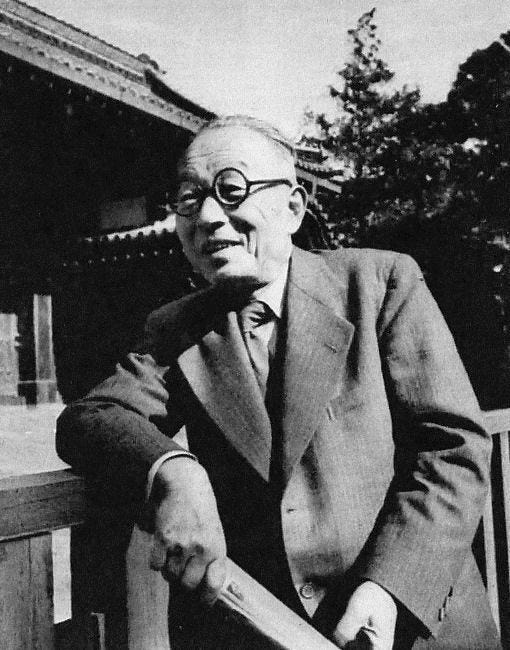Watsuji Tetsurō: The Philosopher of Betweenness
The Hermeneutics of Culture and Our Relationship to Milieu
How many Japanese philosophers can you name?
I often ask this question of my philosophy classes, even here in Japan. My students’ answers show that, while there are many influential Japanese authors who contribute to philosophical and intellectual debates, most of them, remain unknown to the world except for a few specialists.
One exception to this rule is Watsuji Tetsurō (和辻哲郎, 1889–1960). Since the 1960s, various texts by Watsuji have been translated into various languages, including English, French, Italian, and German. Watsuji’s work has been read, commented on, and has inspired many intellectuals, whether or not they have explicitly referred to him. One such intellectual is Augustin Berque (1942-), who is widely regarded as the most prominent non-Japanese scholar to engage with Watsuji’s work.
Despite his international fame, Watsuji has been most influential in Japan, where he was a bestselling author. As David Dilworth explained in 1974 concerning his importance in Japanese intellectual history,
With Nishida Kitarō (1870–1945) and Tanabe Hajime (1885–1962), the reputation of Watsuji Tetsurō continues to command respect among academic philosophers of modern Japan. (…) The mature Watsuji went on to become professor of ethics at Kyoto University and then Tokyo Imperial University (Tokyo University), where he wielded considerable influence in academic circles until his death in 1960. His complete works in twenty volumes, published by Iwanami in 1963, are thus a mirror in which much of modern Japanese intellectual history is reflected. A separate anthology of Watsuji’s writings, edited by Karaki Junzo in 1963, has gone through seven printings to date. (Dilworth, 1974, p. 3)
He was thus not only a best-selling author but also a respected intellectual. The first reason he remains influential, and read, even today is that he engaged with the most influential thinkers of his time, such as Kant, Heidegger, and Nishida Kitarō, offering an alternative to their philosophies.
However, there is at least one other reason for his continued importance. Watsuji was a philosopher in the Deleuzian sense in that he was a creator of concepts. As researchers have shown, his concepts have a hermeneutic dimension that helps us make sense of the world.
Here, I aim to present the main ideas of Watsuji that have been referred to in environmental philosophy and ethics. First, I will introduce the man and his intellectual life. Then, I will present one of his most important ideas, the concept of fūdo (風土), often translated as “climate.” Next, I will discuss his concept of aidagara (間柄), or “betweenness.” Finally, I will conclude by mentioning an ambiguity that characterizes his philosophy.
Keep reading with a 7-day free trial
Subscribe to Philosophy and Beyond to keep reading this post and get 7 days of free access to the full post archives.




